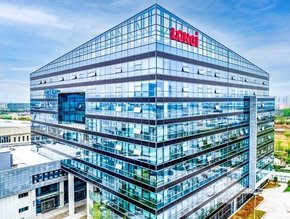LexisNexis: Cost of Financial Crime Compliance rises in APAC

The cost of financial crime compliance has risen significantly according to the 2020 LexisNexis Risk Solutions True Cost of Financial Crime Compliance Study, APAC Edition.
The survey of compliance professionals identifies the factors affecting financial crime compliance and highlights spending trends, while also exploring the business impacts new regulations and challenges associated with the COVID-19 pandemic.
Across financial institutions in India, Indonesia, Philippines and Singapore, the annual projected cost of financial crime compliance is US$12.06bn for 2020, with India representing 46% of those costs. The largest year-on-year increases were felt by larger Filipino and Singaporean financial institutions.
All financial institutions faced unprecedented challenges last year, but firms that focus more of their compliance resources on technology realised both financial and process benefits. Those companies that had done more to transform and invest in digital invariably fared better, with improved risk management and more robust data. These firms were also protected somewhat from increases in compliance costs driven by regulatory needs.
For APAC financial firms that participated in the 2020 study, the cost of compliance was US$12.06bn, with India representing 46% of those costs.
Compliance Technology Reduces Costs
The report found that financial institutions that spent more on technology saw smaller compliance cost increases. The findings show that firms with above average compliance spend on technology are less challenged during the customer acquisition process.
"COVID-19 has undoubtedly impacted financial crime compliance operations and costs for financial institutions across the region," says Douglas Wolfson, director, financial crime compliance APAC for LexisNexis Risk Solutions.
"The pandemic compounded the current set of KYC (Know Your Customer), alert resolution and sanction screening challenges and contributes conclusively to significant cost increases among all banks. Additional regional and international regulations will continue to spur the need for greater internal controls and more comprehensive risk-management technology platforms that help ensure compliance and lessen financial crime compliance cost."
Most APAC financial firms expect COVID-19 to further impact compliance cost over the next 12 to 24 months, according to the report.
Compliance professionals report the pandemic has impacted on these issues:
- Customer risk profiling – 63%
- KYC for account on-boarding – 74%
- Sanctions screening – 75%
- Efficient resolution of alerts – 63%
- Positive identification of sanctioned entities or politically exposed persons (PEPs) – 58%
- Resource efficiencies – 65%






